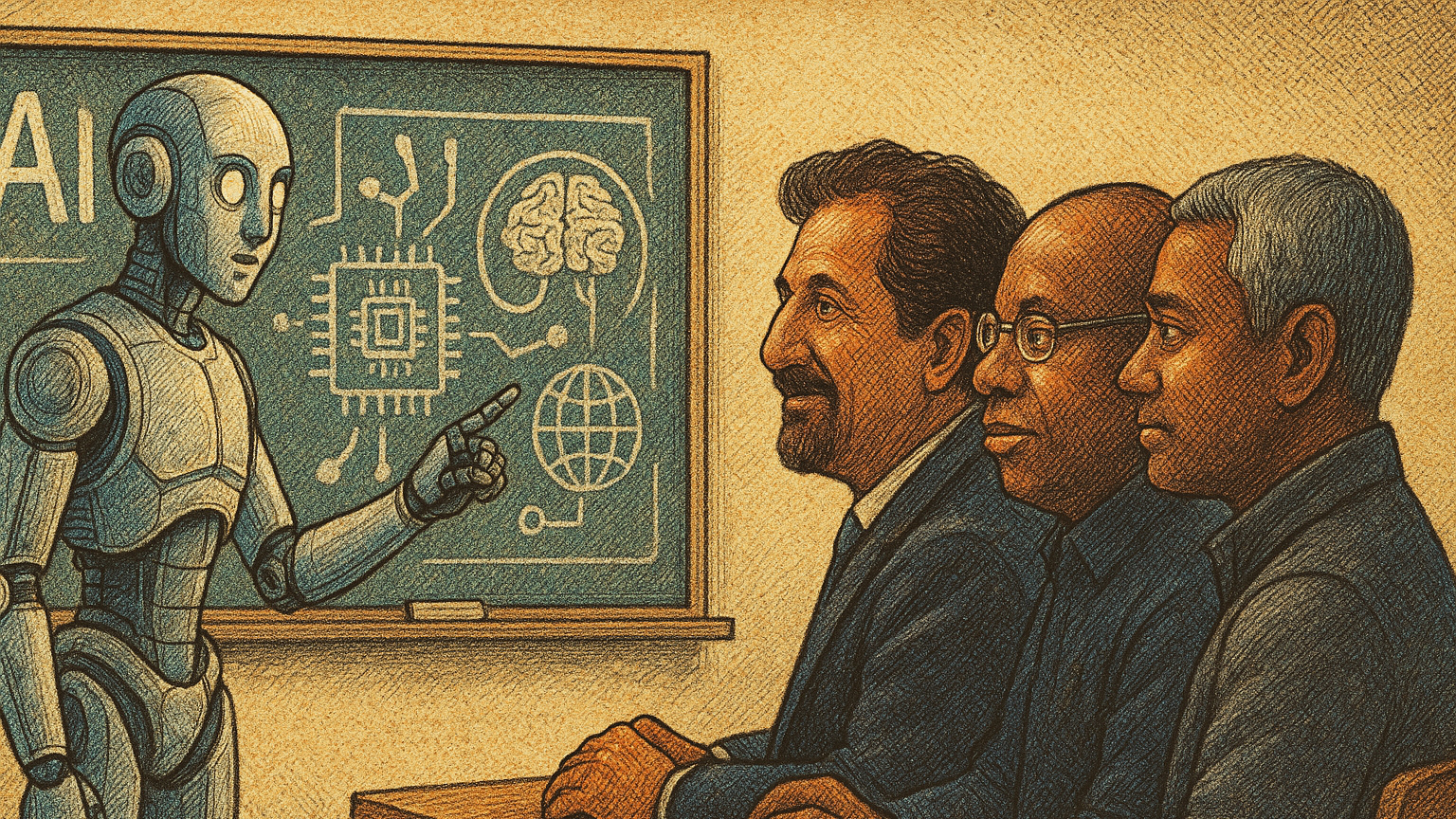The promise and pitfalls of AI in higher education took center stage at a recent virtual panel titled “Smart Classrooms: Rethinking Higher Education with AI” organized by Ashton Adler of South Florida Tech Hub. Leaders from Florida Atlantic University (FAU) shared an unfiltered look at how AI is reshaping classrooms, policies, and the student experience while exposing tough new challenges around access, ethics, and the pace of change.
We’re seeing AI adopted incrementally, but higher ed moves slow and methodically. The pressure from the community to accelerate is real. Our students need to be workforce ready.
admitted Mehran Basiratmand, FAU’s Director of IT for the College of Business.
The panel featured Mehran Basiratmand, Mahesh Neelakanta, FAU’s Director of IT Services, and Willie Freeman, Associate Executive Director focused on faculty and student experience. Together, they painted a complex picture: AI is rapidly permeating classrooms and administrative systems, but financial, ethical, and educational concerns loom large.
AI Policy, Yes, But Uneven Adoption
At FAU, AI tools like Grammarly and Microsoft Copilot are being rolled out to faculty and students. But the university has taken a cautious, layered approach, studying peer institutions and drafting policies to guide use.
Our website, fau.edu/ai, reflects months of work developing guardrails. But let’s be clear, students are already using generative AI, with or without our permission.
noted Mahesh Neelakanta, Director of IT Services.
Faculty adoption is uneven. Some professors embrace AI to design better assignments, Freeman’s team has developed 63 AI enhanced projects ready for integration via Canvas Commons. Others remain skeptical, wary of over reliance and the erosion of critical thinking.
The Economics: AI’s “Gateway Drug” Moment
AI’s creeping costs were a hot topic. With vendors offering steep discounts, like Google’s free Gen AI Pro for students through 2026, universities are facing what Basiratmand dubbed a “gateway drug” dilemma.
They hook you now, but long term, it’s unsustainable. We’re already seeing $20 a month AI tools stacking up. For a school with 30,000 students, that math doesn’t work.
warned Mehran Basiratmand, Director of IT Services
Basiratmand predicted that within two years, AI subscriptions may become mandatory for enrollment, much like requiring laptops today. Public universities, however, face added pressure to avoid creating “haves and have-nots”.
Deep Learning vs. Cognitive Offloading
Beyond costs, panelists grappled with AI’s academic impact, specifically, its role in reducing the deep learning students gain from grappling with complex material.
“AI flips Bloom’s Taxonomy” Neelakanta explained, referencing the educational framework. “Students are creating outputs without understanding the basics”.
To counter this, Freeman and Basiratmand champion an “intelligent interrogation model“, where students use AI to refine ideas but must present their own opinions and verify AI generated content.
Multiple Choice Tests? “Dinosaurs“
The panelists agreed: Traditional assessments are ripe for disruption. Basiratmand called multiple choice exams “dinosaurs” in the AI era, as students can easily outsource answers to chatbots.
Freeman likened the AI moment to the calculator’s arrival decades ago.
It was hailed as the end of logic. Today, no engineer works without one. AI’s no different. It’s time to evolve.
quipped Willie Freeman, Associate Executive Director.
The Infrastructure Strain
Behind the scenes, FAU’s IT teams are inundated with requests to evaluate AI tools. Compatibility with platforms like Canvas, data privacy safeguards, and single sign-on are non-negotiables. Yet, the flood of AI startups complicates decision making.
said Mahesh Neelakanta, Director of IT Services.
We’re in a new dot-com era. By 2030, most AI startups will disappear or consolidate. Picking the right tools today is a gamble.
said Mehran Basiratmand, Director of IT Services.
Looking Ahead: Agentic AI and AI Literacy
The next frontier? Agentic AI, autonomous tools that complete complex tasks. Both Basiratmand and Neelakanta predict bundled AI agents tailored to industries like education will emerge within 12 to 24 months.
But amid the AI gold rush, panelists urged patience and critical thinking.
It’s a marathon, not a sprint. These tools only pay off if you invest the time to use them properly.
reminded Mehran Basiratmand, Director of IT Services.
